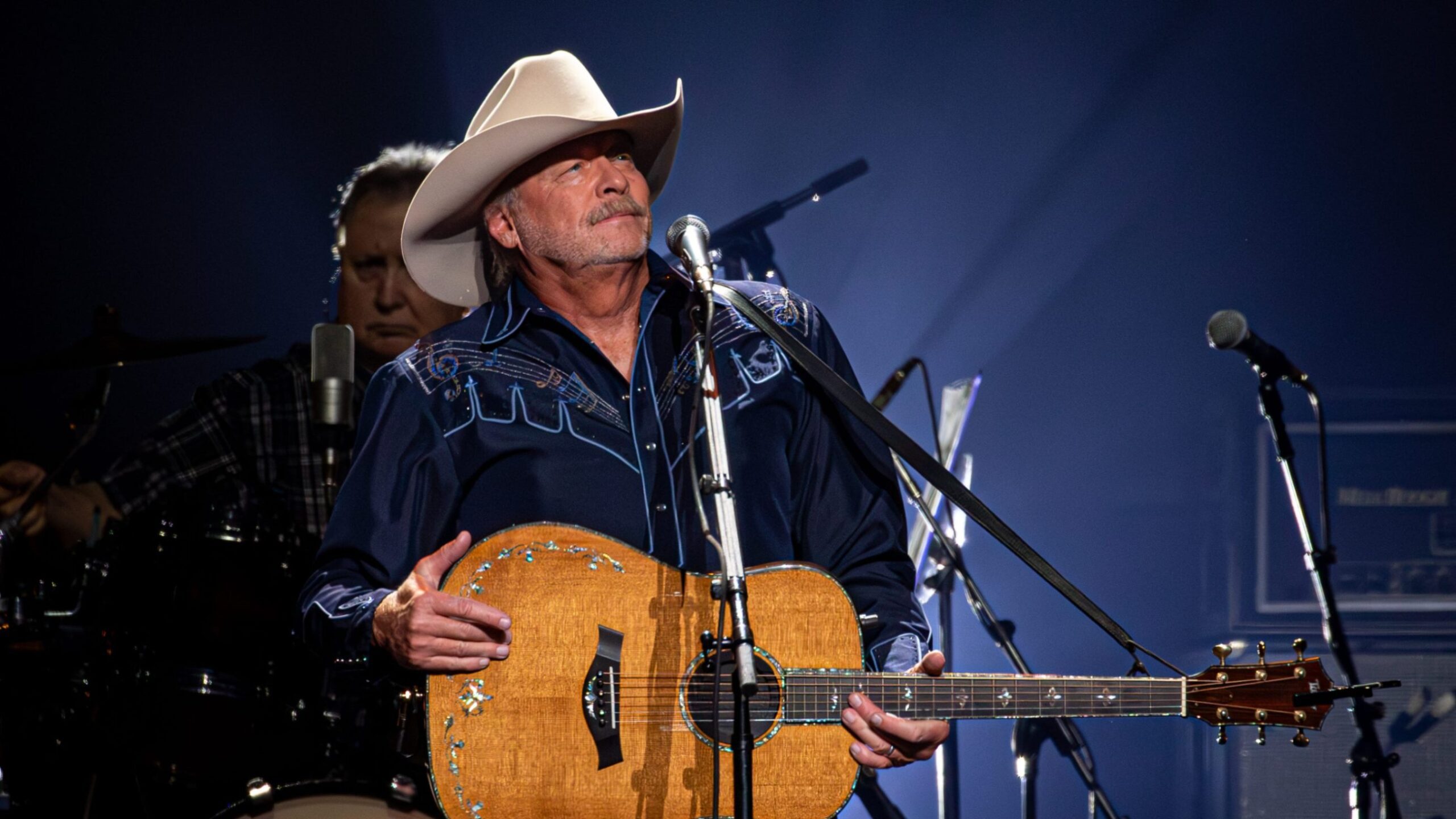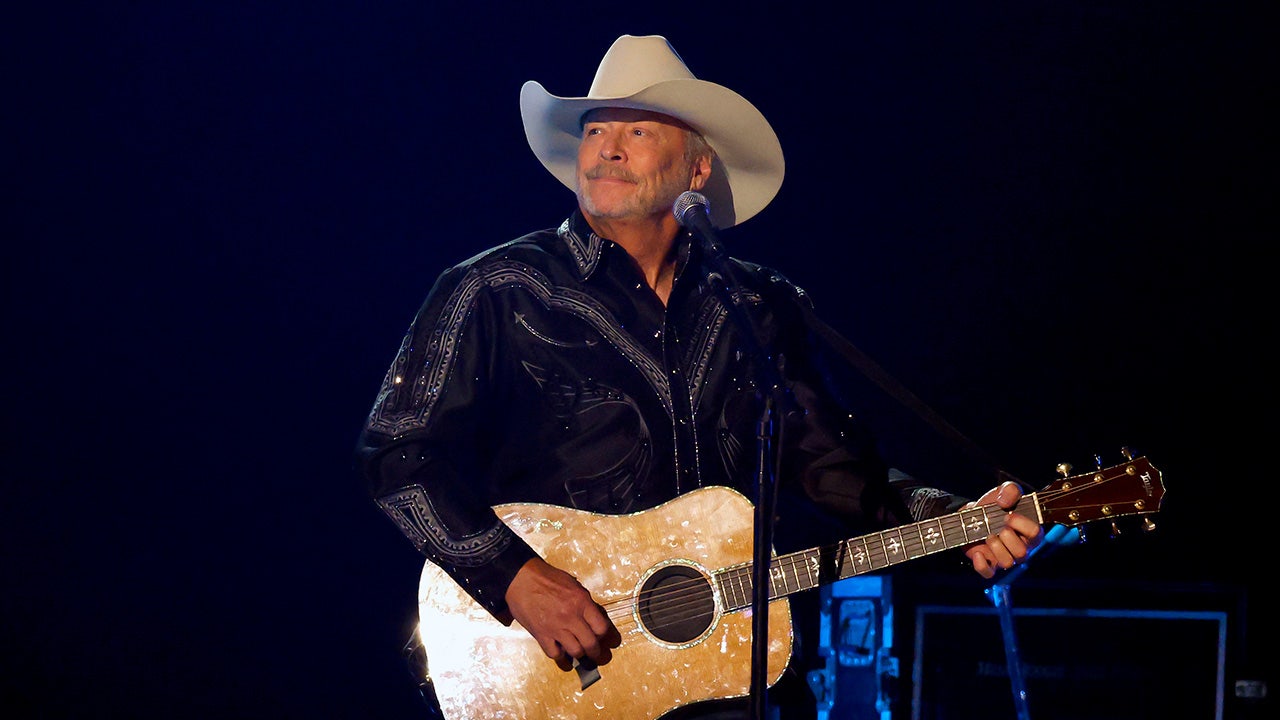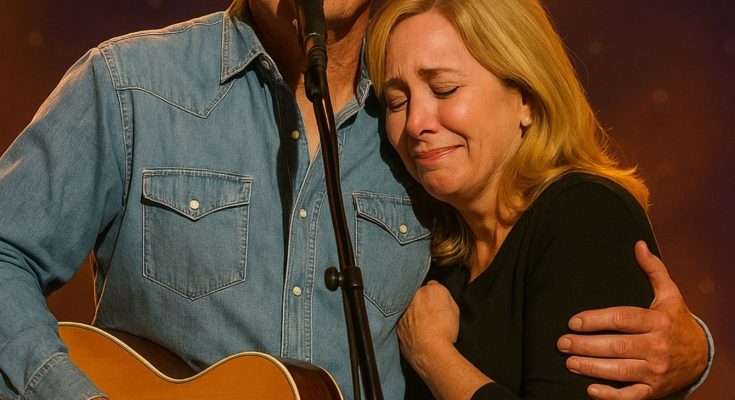On the evening of May 17, 2025, in Milwaukee, Wisconsin, the city’s arena pulsed with anticipation as fans gathered for what would be a historic night: Alan Jackson’s final performance, closing out his farewell tour, “Last Call: One More for the Road.” For four decades, Jackson’s unmistakable cowboy hat and warm baritone had defined modern country music. But on this night, those same hallmarks took on new meaning as thousands of devoted supporters prepared to witness the end of an era.

The show opened with the familiar strum of “Remember When,” a song that has long served as an emotional vessel for Jackson’s greatest memories. As the first chords sounded, the arena fell silent. Then, as his rich voice filled the air, fans of all ages—some wearing t-shirts from his earliest tours—joined in a chorus that resonated like a collective sigh. The moment was more than nostalgia; it was a communal recognition of Jackson’s indelible impact on their lives.
Next came “Where Were You (When the World Stopped Turning).” The song, written in response to the turmoil of September 11, 2001, has become one of the most poignant anthems in American music. As Jackson sang the opening lines—“Where were you when the world stopped turning on that September day?”—many in the audience closed their eyes, transported back to that moment in history. Tears tracked down cheeks as they remembered life’s fragility and Jackson’s role in capturing a nation’s grief and courage.
Midway through the show, Jackson paused. His posture, slightly stooped from years of touring and the progression of Charcot-Marie-Tooth disease—a neurological disorder that weakens muscles—reflected both his vulnerability and his unwavering resolve. With his signature drawl, he addressed the crowd:

“This isn’t just goodbye to the stage… it’s a thank you. For 40 years, you’ve given me a reason to sing. And I’ll carry y’all with me forever.”
At that moment, Denise Jackson, his wife of more than thirty years, sat in the front row, wiping away tears. Nearby, longtime fans—some clutching vinyl copies of his first albums—leaned forward, as if willing to prolong his words. The sincerity in Jackson’s eyes spoke volumes: despite the physical pain he battled every day, he had chosen to share one last night of music with those who had uplifted him throughout his career.
The setlist continued with “Chattahoochee,” the high-energy classic that once captured the joy of small-town summer days. The arena erupted in applause as Jackson launched into the familiar riff, and fans leapt to their feet, clapping and singing along. For a brief moment, the disease that had crept into his life seemed to vanish. He moved—somewhat gingerly, yet with undeniable spirit—across the stage, reveling in the roar of the crowd.
But the evening’s true climax came during “Drive (For Daddy Gene).” The song, a tender tribute to the father who introduced Jackson to country music, carries deep personal significance. As Jackson began the opening verse—“Daddy drove a farm truck to town each day / He worked for the man like most dads do…”—the arena dimmed, and a single spotlight bathed him in a soft glow. Confetti cannons erupted at the final chorus, showering the stage in a blizzard of color. In that moment, many in the audience were overcome with emotion. Some sobbed openly; others held hands with loved ones, knowing they would never witness another live performance from their hero.

When the final note faded, Jackson took one last glance at the cheering crowd. He tipped his hat, a gesture both humble and triumphant, and walked offstage. Though the lights went dark, the echoes of the night lingered in every soul present. Thousands of voices still rang with the melodies he had woven through their lives.
Beyond the music, Alan Jackson’s legacy lies in the simplicity and authenticity he championed. For forty years, he sang about everyday life—love, loss, faith, and the American South—and made those stories feel universal. Even as Charcot-Marie-Tooth disease tightened its grip, he refused to let it silence his voice or dim his spirit. His decision to push through the pain for one final performance exemplified his dedication to fans and to the craft he loved.
In the days since May 17, social media has been flooded with tributes: photos of fans in cowboy hats, clips of Jackson’s final bow, and heartfelt messages thanking him for the soundtrack of their lives. Radio stations have replayed his greatest hits nonstop, and country music venues nationwide have held “Last Song” listening parties to honor his career.
As the confetti settled and the arena emptied, one truth remained clear: Alan Jackson’s “Last Song” was more than a concert—it was a cultural moment that united generations. He exited the stage on that May evening with a humble smile, leaving behind not only a catalog of unforgettable music but also a legacy of resilience, gratitude, and timeless storytelling that will echo in the hearts of millions for years to come.
